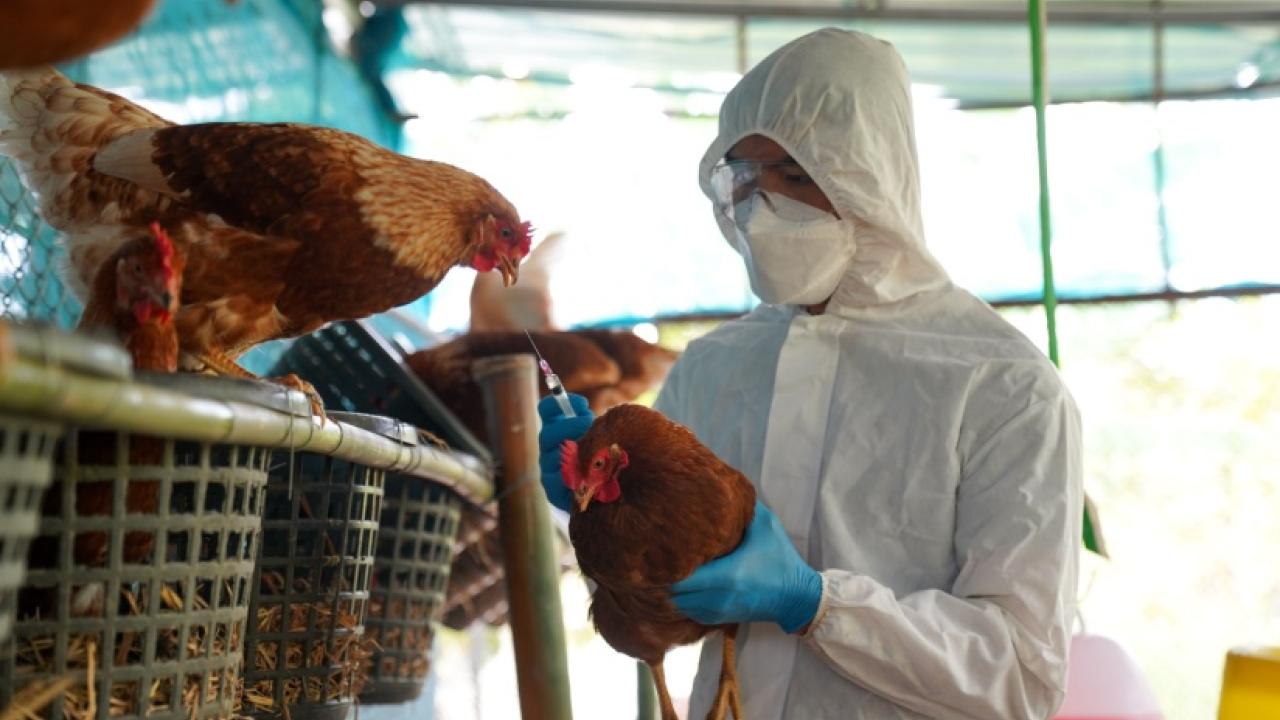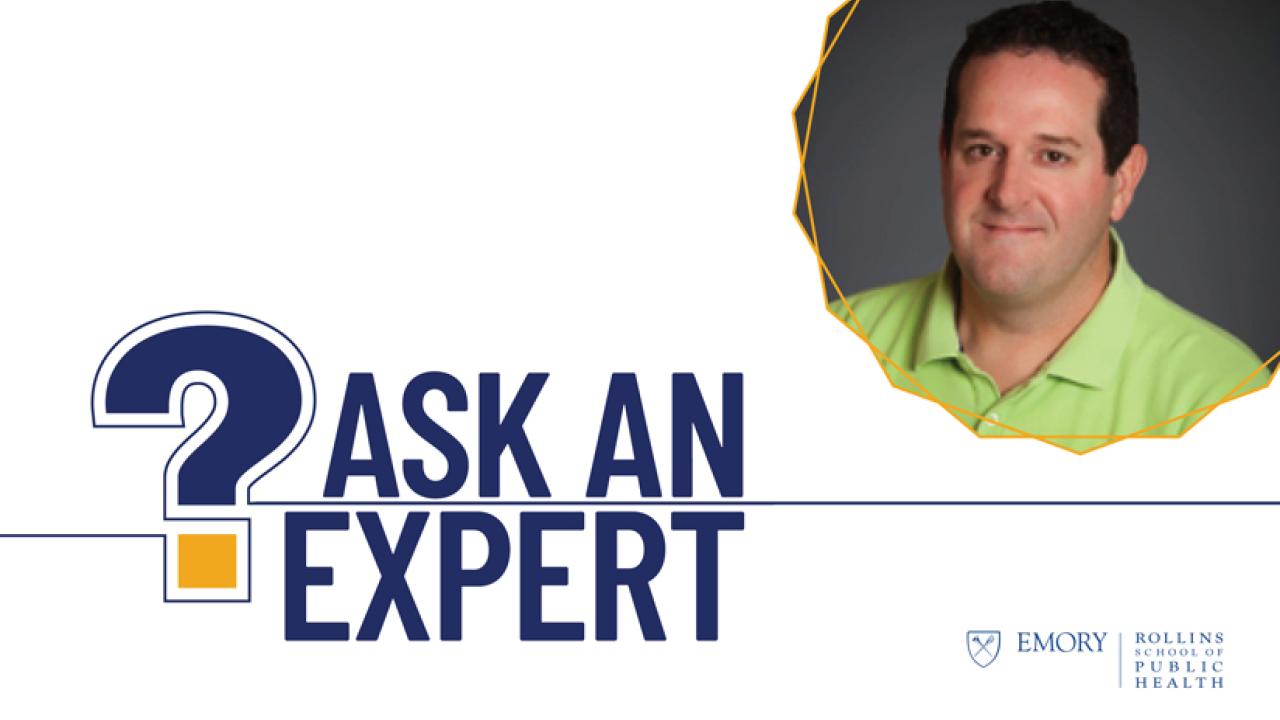Epidemiology Research & Practice

On This Page
Research Overview
The Department of Epidemiology provides outstanding and unique opportunities for education, research, and public health practice through our centers and labs, partnerships, and high-impact faculty.
Our Research Topics and Types
Our faculty’s research encompasses a wide range of epidemiologic topics spanning from cancer to HIV to preparedness.
Research Topics
- Cancer
- Cardiovascular disease
- COVID-19
- Genetic and molecular epidemiology
- HIV/AIDS
- Nutrition
- Public health preparedness
- Reproductive epidemiology
Research Types
- Clinical trials
- Cohort studies
- Disease surveillance
- Outcomes research
- Translational research
Research Spotlight
EPI Research Improving Health

New Alzheimer’s Research Support Center Will Evaluate, Scale Promising Dementia Care Programs Nationwide
Researchers from the Rollins School of Public Health are partnering with the University of Minnesota and Johns Hopkins to lead a new national resource to advance dementia care.

Bird Flu Update: Four Questions with Jodie Guest
In this interview, Jodie Guest, PhD, professor of epidemiology at Emory's Rollins School of Public Health, answers our most pressing questions about recent bird flu developments.

Ask an Expert: HIV Testing with Travis Sanchez
Travis Sanchez, DVM, discusses HIV testing access and importance ahead of National HIV Testing Day.
Focus Areas
Our Areas of Expertise
An aging global population, changes in lifestyles, and environmental exposures have made cancer one of the defining diseases of the 21st century. Cancer rates continue to rise, even among the young, making it a leading cause of death worldwide. But breakthroughs in genomics, precision medicine, and immunotherapy are transforming our understanding and treatment of cancer.
Through the lens of epidemiology, researchers can uncover critical insights into environmental, genetic, and lifestyle factors that influence cancer rates and outcomes. Our faculty studying cancer are driving advances in prevention and early detection, helping us understand why certain groups are at higher risk and how to intervene effectively.
Our faculty study topics such as:
- Predictors of cancer recurrence at the molecular level
- HPV vaccine acceptance and rates of cervical cancer
- The role of sex hormones as determinants of cancer risk in transgender people
- The contributions of the social environment to the tumor epigenome
- Disparities in breast and ovarian cancers
Cardiovascular disease (CVD) is a pressing public health challenge, responsible for a significant portion of global mortality. Unhealthy diets, physical inactivity, smoking, and obesity can all contribute to this widespread health issue. As populations age and lifestyle-related risk factors continue to increase, CVD threatens to overwhelm health care systems, especially in low- and middle-income countries.
Addressing this crisis requires comprehensive public health strategies focused on prevention, early detection, and access to care. Through programs like EPICORE and METRIC, our faculty, students, and postdocs are driving cardiovascular health advances.
They study topics such as:
- Geographic and socioeconomic inequalities in cardiovascular health and health care
- Neurobiological stress pathways and their effect on heart health
- Psychosocial factors and the effect of mind-body interactions on health
- Diabetes and metabolic syndrome
Rollins researchers have been at the forefront of advancing HIV science for decades. Through clinical research, community-based work, implementation science, and more, faculty working with the Emory Center for AIDS Research and PRISM Health are improving the lives and health outcomes of people living with and at risk for HIV across the U.S. and around the world.
Our faculty study topics such as:
- Visual representations and tracking of the HIV epidemic across the U.S.
- The impact of widespread access to at-home HIV testing
- Increasing use and availability of pre-exposure prophylaxis, especially among young black men who have sex with men and women.
From COVID-19 to measles to bird flu, infectious diseases consistently make headlines, disrupt daily life, overwhelm health care systems, and create significant public health challenges. Faculty in the Department of Epidemiology are helping us understand and address these challenges.
Faculty are focused on studying disease transmission, surveillance, prevention, and modeling to predict, manage, and prevent future outbreaks. Through cutting-edge research, data-driven approaches, and innovative programs like the Center for Infectious Disease Modeling & Analytics and Training Hub, our researchers are enhancing our understanding of how diseases spread and how populations respond.
They study topics such as:
- Wastewater surveillance for infectious disease
- Vaccine development and evaluation
- Patterns of social contact and how they influence the spread of disease
- Machine learning for disease modeling and forecasting
- The impact of science communication
Centers & Labs
Research Centers and Training Grants
Join Us
Ready for Your Next Step?
Whether you already know you want to pursue research at Rollins or want to learn more about admissions and costs, we’re here to help.






